“You have a really good voice. Have you ever thought about doing voiceover?”
This is a quote that is often shared with me by people (usually fellow bloggers) that are suddenly intrigued by the world of voiceover. Why are they sharing it with me? Because I am actually working as a professional voiceover artist!
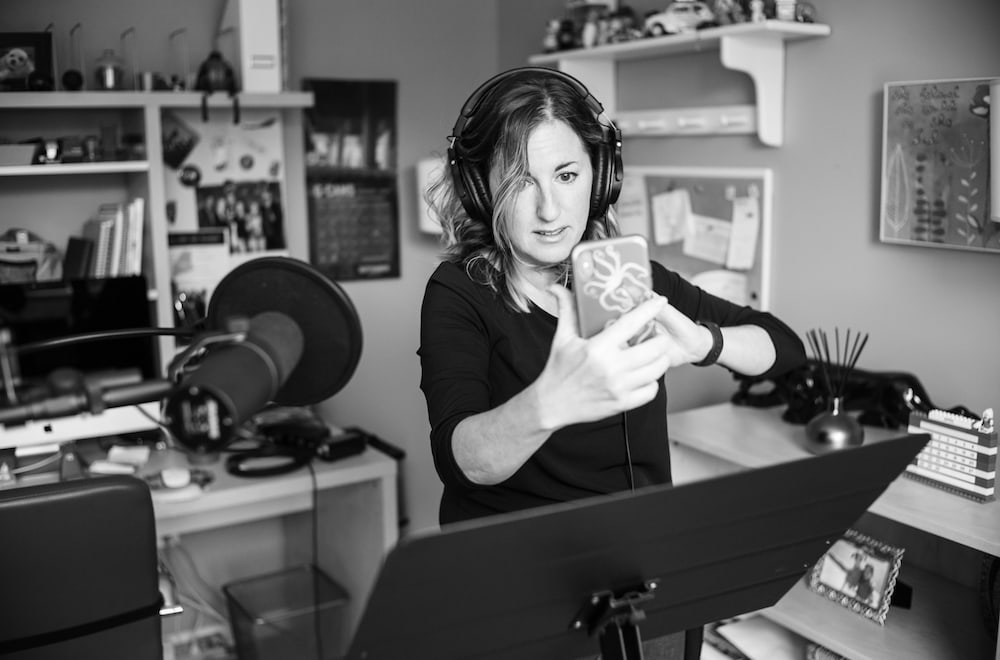
When people share this quote, it’s because they have heard me make mention that I am doing voice over work now and it seems like this mysterious black hole and they want in. But they have absolutely no idea how or even where to begin.
If this sounds like you, I’m ready to share the 1-2-3s of what you need to know if you’re looking to get into voiceover. Some of it’s good and some of it is, well, very realistic.
Voiceover vs Voice Acting
If you check out my voiceover site, you’ll see that I call myself a Voiceover Artist but I also use the term Voice Acting. They are interchangeable and they’re both applicable.
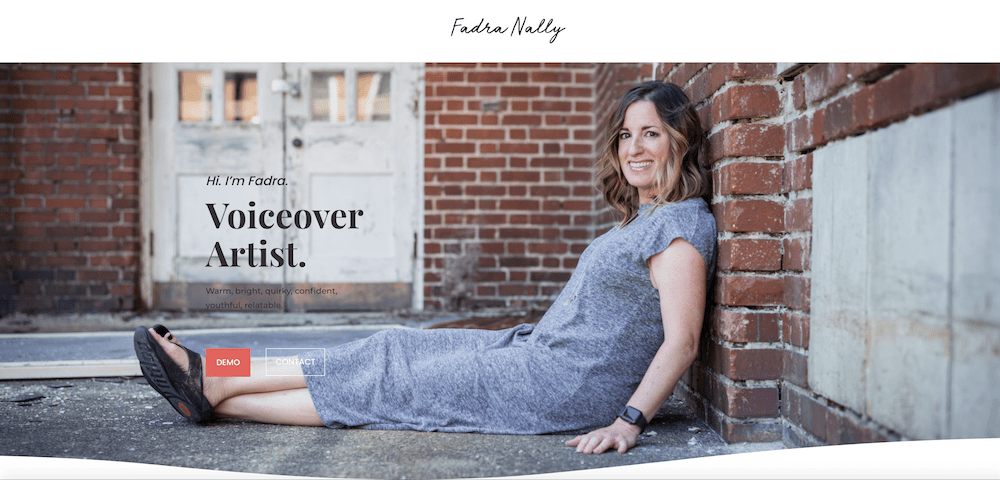
If you’ve never fancied yourself a performer, you might as well stop now. Voiceover work is voice acting. There are auditions and scripts and characters and motivations and intentions and scene partners.
If those terms are unfamiliar to you or even intimidating for you, you’ll definitely want to read on. Voiceover is not simply sitting in front of a microphone and having a good voice. You might make a good announcer but that’s not where voiceover is today.
So let’s talk about what voiceover does look like today.
What Kind of Voiceover Opportunities Are There
Once you start to really think about voiceover and the opportunities that might be out there, you’ll notice voiceover EVERYWHERE.
Commercials you see on TV or hear on the radio? Voiceover.
Your favorite audiobook on Audible? Voiceover.
The clickbait YouTube channel you like to watch? Voiceover.
The announcer at your local store reminding you to “mask up and stay 6 feet apart”? Voiceover.
It’s everywhere. The most common genres you’ll find are: commercial, audiobooks, narration, explainer videos, telephony (automated voice recordings), podcasts (yes, some people hire voiceover artists to perform their scripted podcast), video games, animation, apps, eLearning, and more.
Some are more lucrative than others (commercial can pay a lot) and others are lower paying and more commonplace (web video voiceover). But there are a lot of opportunities.
And truth be told, there’s a lot of competition as well.
In the past year, the market has been flooded with new voiceover artists looking for work. Some are professional actors that are looking for alternative income streams since most stage and film productions are on hold. And others are people like me, or even you, looking to fulfill a dream career or simply find a new work-from-home income stream.
Competition is fierce but that simply means you have to be willing to develop your talent and skills and bring your A game.
What Training or Experience Do You Need for Voiceover
Here’s the reality: much like blogging (or acting, for that matter), you don’t need any training or experience to get started.
But if you want to actually get hired, you are going to need to focus on a few areas.
Acting
As I mentioned above, voice acting is acting. I actually minored in Theater so I already had some experience in understanding how to approach a role or assignment. I’ve taken courses in voice, movement, and acting. But I was still rusty.
I worked one on one with a voice acting coach who gave me not only a refresher on acting but a great introduction to what the voiceover industry is all about and what terminology I’d need to become familiar with.
Demo
In the blogging world, your URL is your calling card. It’s where potential clients can go to see your writing style, learn more about you, and connect to you via your social platforms.
While it’s recommended that you have your own website as a voiceover artist as well, instead of blog posts, you’ll want voice samples and that includes a professionally produced demo.
Here’s my commercial demo.
Ideally, you’ll want a demo for each genre you intend to work in (animation demo, narration demo, etc.) but I started with a commercial demo as it was the most versatile.
This is NOT something you can or should produce at home. I worked with a company that created custom scripts suited to my voice. I scheduled booth time at a professional studio, and I had a coach patched in to help me with the multiple takes. Then the takes were edited together, music was applied, and the demo above is the result.
Expect to spend at least $1000 for a high quality demo. This is your calling card. Often, you don’t even audition. You send your demo (also known as a voice reel). So make it the first of your many investments if you’re serious about voiceover.
Technology
You’ll also need to get a little tech savvy. Okay, a LOT tech savvy.
Although my demo session involved me showing up and reading lines, most voiceover artists are working from home in a professional home studio. And they’re also editing and mastering their voice files for their client.
Here are some of the things to consider when working from home.
You’ll need a space to record.
Ideally, it’s a quiet space with a low noise floor (you wouldn’t believe the sounds a good mic will pick up). And you’ll probably want to do some acoustic treatment to your space. Soundproofing and treating are different things. One makes your space quiet. The other makes your voice sound better.
You need good equipment.
I thought I had a good mic when I started using my podcasting mic but when you start diving deep into sound waves and spectral analysis, you’ll really notice what you haven’t been noticing.
I invested in a highly recommended cardioid dynamic microphone, the Shure SM7B, the Focusrite Scarlett Solo USB Audio Interface, and the Cloudlifter CL-1 mic activator (booster).
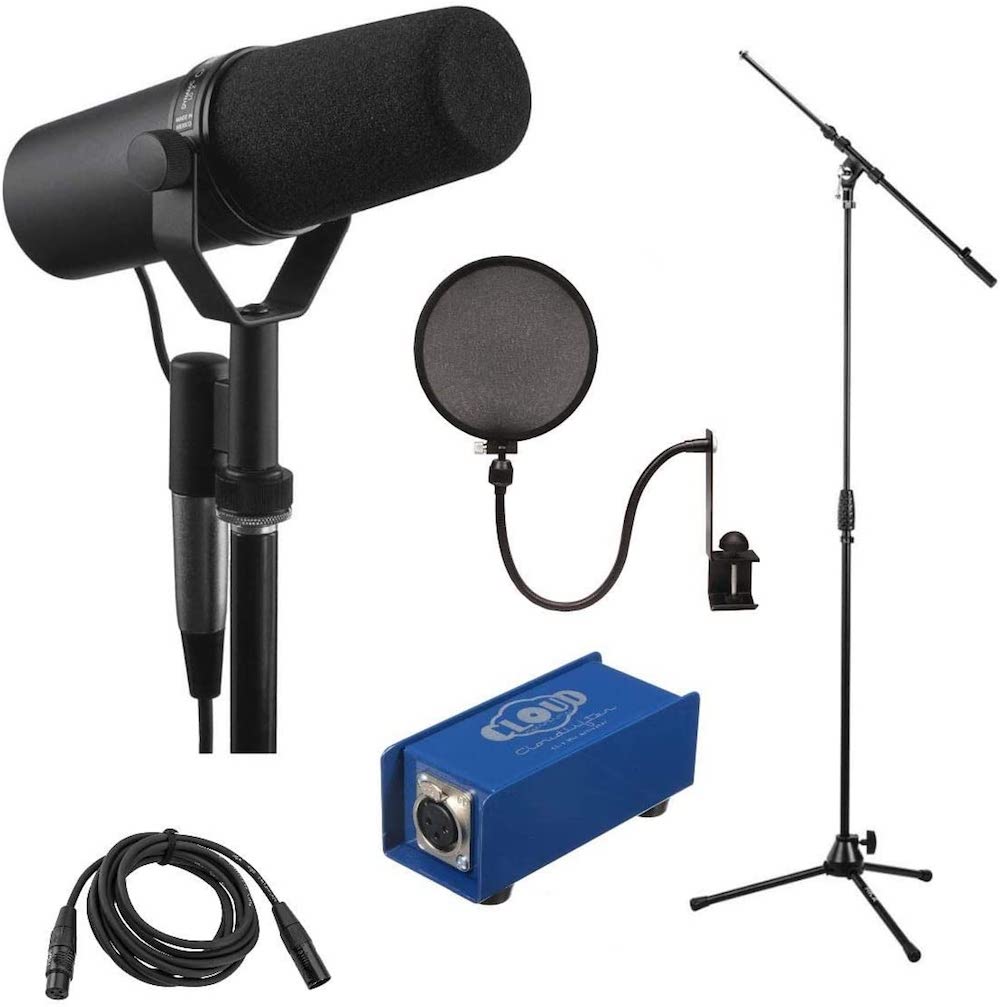
You want professional software.
You’ll need a DAW (digital audio workstation), or software to help you record, master, and edit your audio tracks. Many people use Audacity, which is free, but I started with Adobe Audition and I’m thrilled with what I can do with it.
Business + Marketing
Once you’ve got everything else taken care of, you need to know how to run and market your own business. If you’re a blogger, you probably already have a good handle on this.
You know how to have an online presence. You know how to use social media. And you know how to pitch yourself. You’ll need to do all that and then engage in direct marketing. Also, audition, audition, audition.
How to Get Started in Voiceover
Hopefully, you have a better idea of how complex the voiceover industry is. And maybe you’re still interested. But you might also notice that training, coaching, equipment, etc. all comes at a cost.
Yep, it takes money to make money. Just like starting a blog involves an investment. Or going back to school for a new career involves an investment. Voiceover requires an investment.
So how did I get started? Well, I was just like you. I saw a fellow blogger doing voiceover work and thought, “I always wanted to do that!” And I asked her how she got started.
She referred me to Such A Voice, an online service that offers voiceover training and demo production. After a healthy dose of skepticism, I did a one on one interview with one of the recruiters and remembered that 2020 was my year of yes. I invested in myself and the program.
Depending on the program you choose, you’ll get one-on-one coaching (virtually) with a focus on acting and technique, custom demo production, and technical training as well as marketing sessions. And I’m in their professional Facebook group which has been an incredible source of support and continued learning.
(Note: If you are interested in Such A Voice, my referral link will give us both $200: https://suchavoice.isrefer.com/go/friend/a222/).
There are other websites out there that give you introductory information about the voiceover industry and also coaching and demo production. I preferred the ease of a one stop shop and after completing the program, I jumped in feet first.
Almost a year ago, I started my voiceover journey. In August 2020, I booked my first paying gig and I’ve been working ever since. As many people say, it’s not a sprint but a marathon and I’m in it for the long haul.
If you have any questions about starting in the industry or would like to see more detailed questions answered, please let me know!

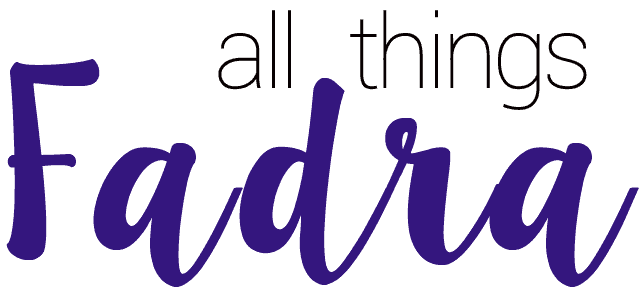
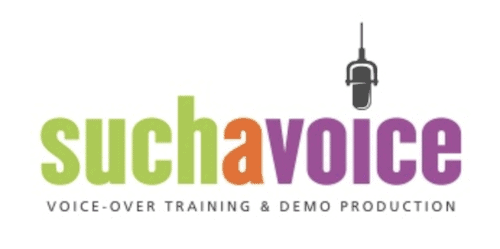
1 comment
This is inspiring! It’s great to hear your story about going from “always wanted to do that” to booking paying gigs. It sounds like a lot of work, but the flexibility and creativity of voiceover work is appealing. Thanks for sharing your referral link for the training program too!